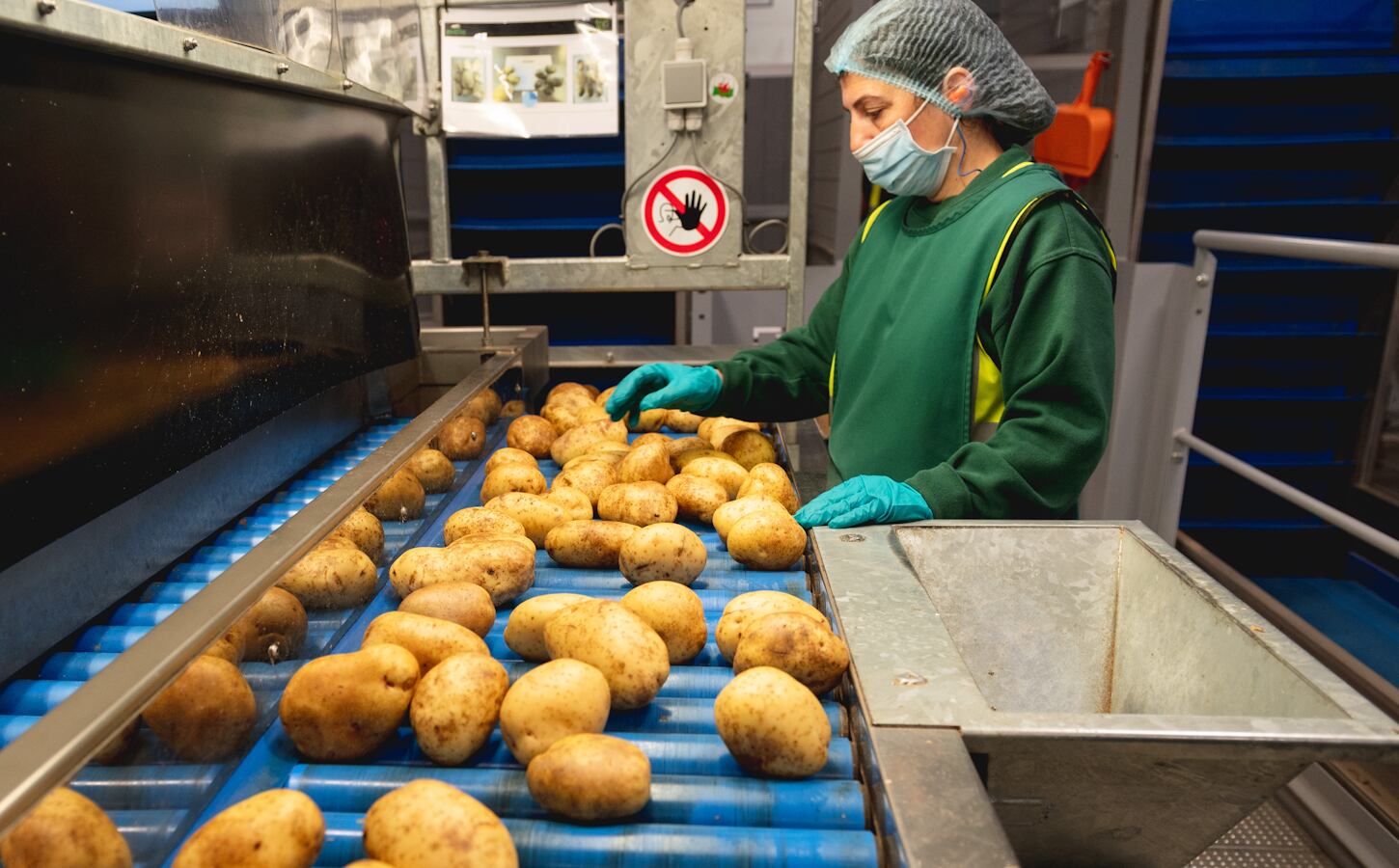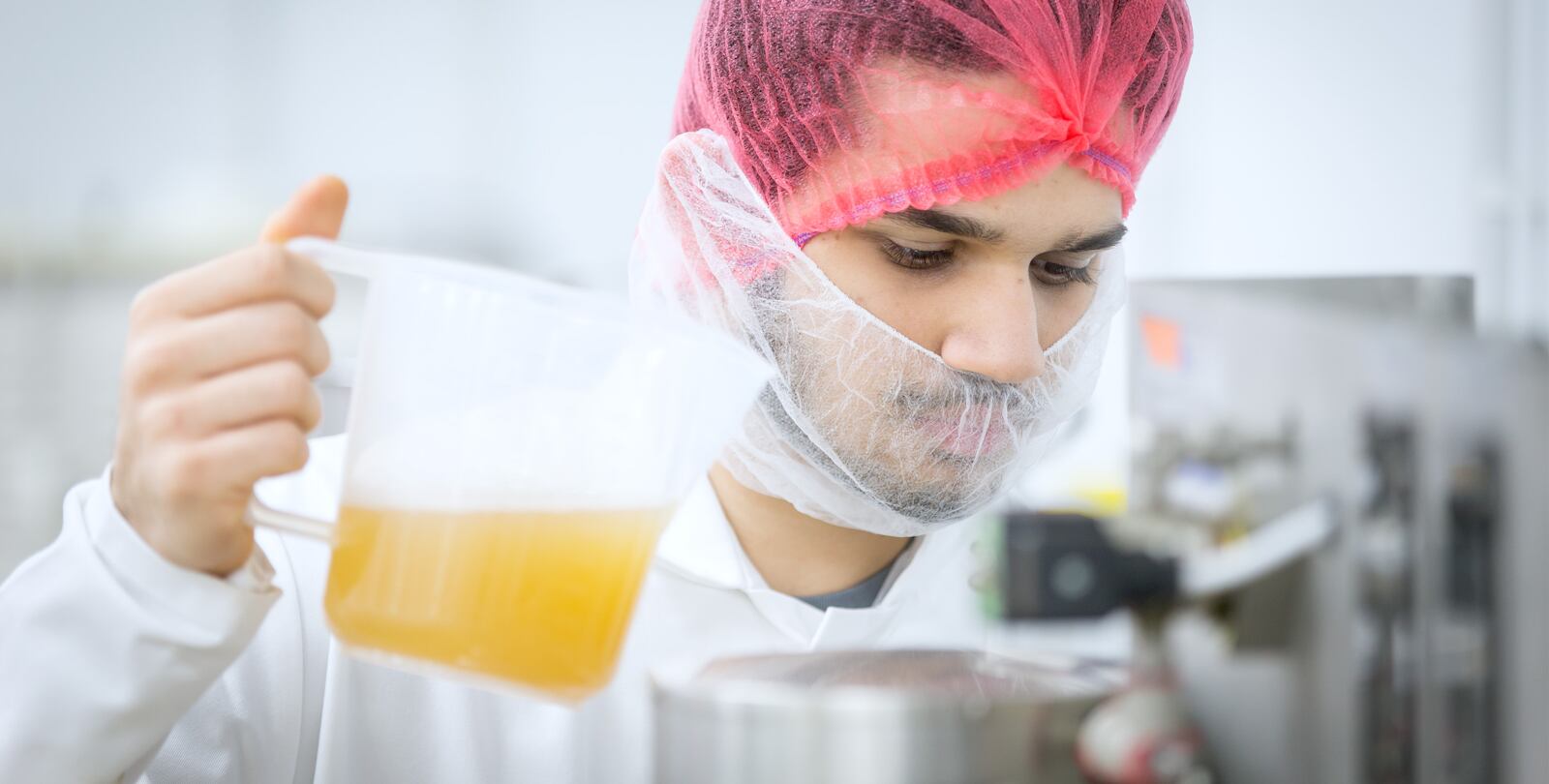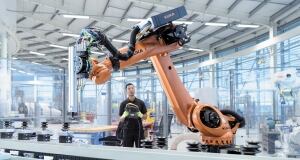Amid all the pressures faced by today’s food & drink manufacturers, the added challenge of meeting increasingly stringent environmental expectations can seem insurmountable. Yet, with centralised government help, gradual progression towards a greener future can bring multiple benefits, including improvement in the bottom line, as businesses based in Wales are discovering.
With the UK Government focused on driving corporate sustainability, food and drinks businesses across the country are stepping up the challenge of meeting environmental targets.
Some of this regulation, emanating from the targets imposed by the original Climate Change Act 2008, includes lowering carbon emissions, meeting measures under Extended Producer Responsibility, and adhering to mandatory climate disclosures that give transparency to their environmental impact and make public how climate change could affect their long-term resilience. Companies are required to undertake rigorous environmental impact assessments and adhere to waste management protocols, as well as use renewable energy sources and move towards the principles of a circular economy.
All of this has the aim of moving the UK towards a legally binding target of net-zero greenhouse gas (GHG) emissions by 2050. And the regulatory landscape is unremitting, with further legal compliance, including the UK Sustainability Reporting Standards (UK SRS) on the horizon next year.
It’s a huge undertaking for food & drink manufacturers to absorb in a climate where they are already struggling with numerous operational and cost pressures. And, as revealed in a report from assurance, tax and advisory firm Grant Thornton last year, less than half (43%) of UK mid-sized businesses (with revenue between £15m and £1bn) have sustainability targets in place. That said, the report also found that UK businesses are on a positive trajectory in their sustainability journey, with 68% having implemented a sustainability strategy (vs 51% globally), 46% having implemented sustainability reporting (vs 40% globally) and 28% having implemented a sustainability policy (vs 25% globally).
So it’s clear that the willingness to embrace sustainable change is there. However, many require a framework of support and education to effect change.
How Wales makes a difference
In Wales, the vision of the Welsh Government is driving that change, as it aims for its target of making the local food and drink supply chain one of the most environmentally and socially responsible in the world.

One of the ways Welsh Government is supporting businesses is through the Food & Drink Wales Sustainability Cluster, where they help businesses to adopt and transform their practices to enhance their environmental message to both their customers and consumers – with the ultimate benefit of growing sales in a sustainable way. This includes supporting companies on their journey to achieve B Corp certification, reinforcing their commitment to social and environmental responsibility.
To help achieve sustainable growth, the Welsh Government offers the Climate Adaptation Readiness Tool (CART) – a fully funded, comprehensive, and sector-specific assessment unique among UK and European government initiatives. CART enables food and drink businesses to evaluate their readiness for the impacts of climate change, identify strengths and areas for development, and take action to mitigate carbon emissions. This support includes one-to-one training to help businesses pinpoint vulnerabilities and a climate resilience toolkit for independent retailers to assess climate risk and create short- and long-term plans to address it. In addition, a suite of training modules around climate adaptation and resilience have also been made available, which helps businesses with their preparation for the inevitable disruption caused by the impact of climate change.
Meanwhile, as measuring carbon outputs is a key strategy in achieving sustainability goals, in 2024, Food & Drink Wales launched a carbon reduction pilot scheme to assist businesses in cutting down on their emissions and environmental footprint. The programme helps businesses baseline their carbon emissions a develop carbon reduction plan (CRP) to reduce them. From April 2026, this carbon reduction support will be absorbed by the functions of a new Sustainability Service.
Tesco is working alongside its suppliers and the Welsh Government on the pilot programme, with relationship manager for local sourcing Enfys Fox noting: “We recognise the role that industry has to play in helping reduce carbon emissions. By supporting our suppliers in baselining their impact and providing actionable strategies to take forward, we are taking important steps to address the climate crisis and ensure a sustainable future for the industry.”
It is now a pre-requisite for companies to have a carbon reduction plan in place and to have completed the climate adaptation readiness assessment in order to be able to apply for funding from schemes such as their Food Business Accelerator Scheme (FBAS). So it is more important than ever for food and drink businesses to get on board and work together to help create a sustainable food and drink industry.
Carbon reduction scheme – case studies

Businesses that recently completed the Carbon Reduction Pilot include Edwards, The Welsh Butcher. Based in Conwy, north Wales, the company sells through major retailers such as Asda, Morrisons, Sainsbury’s and Tesco. Finance manager Simon Edwards says the scheme was a valuable opportunity for the business to deepen its understanding of its environmental impact and strategically enhance its sustainability practices. “The Carbon Reduction Pilot provided us with clear visibility into our Scope 1, 2 and 3 emissions, enabling us to strategically focus our efforts and resources on the areas where we can make the most significant positive impact,” he says. Key milestones for the company included gaining a comprehensive understanding of operational data, identifying specific areas for environmental improvements, and defining clear and actionable steps to achieve sustainability goals.

Meanwhile, at La Crème Patisserie, based in Cwmbran, south Wales which produces over 50,000 pieces of cake a week, mainly for foodservice, one of the company’s clients introduced ambitious targets for reducing their own carbon footprint, which put pressure on the cake company to demonstrate tangible actions and results in the pursuit of becoming more sustainable. Robert Hindle, operations director at La Crème Patisserie, says the Carbon Reduction Pilot was crucial in providing them with essential tools and expert guidance to strategically enhance their sustainability practices, providing a manageable and actionable way for the company to tackle climate change and reduce carbon emissions. “It gave us the opportunity to formalise our processes and develop robust methods for accounting and comparing with other producers and manufacturers,” he says. “So, when a client asks us for evidence, we are able to show them how we’ve successfully managed to reduce our carbon emissions.
“Not only that, but we’re also seeing financial benefits as the scheme has already helped us to reduce our waste, consider better disposal options and save money.”
Finally, with B Corp considered “an international gold standard for sustainability”, according to Food & Drink Wales, its holistic approach is one that the Welsh Government is keen for food and drink businesses to strive towards. With access to expertise and training on becoming more sustainable, businesses are enabled to get that much closer to their sustainability goals, including B Corp. Indeed, according to Food & Drink Wales, “it seems likely that, in the long run, those retailers and manufacturers who demonstrate business responsibility through sustainable improvements in environmental, social, health and quality values will be most favoured by consumers”. And, in turn, consumer favour generally translates into higher sales.
The B Corp bonus
Scott James, founder of Coaltown Coffee, which became Wales’ first B Corp food and drink producer, says sustainability shapes the company’s decisions – “how we source, how we package, how we deliver”. “We’re conscious that even well-intentioned change has to work in practice,” he notes. “Operating in rural Wales means we have to think carefully about things like switching to electric vehicles and how to balance efficiency with environmental impact. It’s about steady, continuous improvement rather than perfection overnight.
“Being B Corp means we’re independently audited on what we say we do. It also means we’re part of a community of businesses that share the same ambition – to use the business as a force for good. The learning you get from that is invaluable.
Mark Grant, who helps manage the Food & Drink Wales Sustainability Cluster believes sustainability is about “responsibility in every sense – financial, environmental and social. With around 100 producer members in the Cluster and about 30 academic and support partners, the sense of shared learning is what makes it so effective, he says. “It’s not about lecturing businesses on what to do; it’s about bringing them together to solve problems, share experiences, and see what’s working for others,” he observes. “That peer support is invaluable. Hearing another producer explain how they’ve reduced waste, switched to renewable energy, or achieved B Corp certification can be far more motivating than hearing it from a consultant. It makes the goal feel real and achievable.”
Meanwhile, as Linda Grant, who helps deliver the Welsh Government-funded Scale Up Programme, pointed out in a recent podcast, for her, sustainability is really about resilience – “the ability of a business to adapt, stay competitive and keep going no matter what the world throws at it”. She says the term ‘sustainability’ can intimidate people and can feel like something distant or difficult to measure. “But in practice, it’s about continuous improvement – making your business that bit better, that bit leaner, that bit more future-proofed,” she says.

Of course, all of this support towards net zero ambitions is not entirely altruistic; the Welsh Government is keen to attract inward investment from food and drink businesses that are keen to work with the nation’s administrators towards a healthy economic future. And sustainability support plays a key role in this initiative.
Five years ago, the Welsh Government published its International Strategy for Wales, with climate and environmental ambitions a key factor in the overall plan. So, for businesses looking to operate in the country, there is plenty of support on offer to achieve environmental ambitions.
Huw Irranca-Davies, Deputy First Minister and Cabinet Secretary for Climate Change and Rural Affairs, is proud of the support on offer for businesses in Wales.
“It has been clear to us that the direction of travel is the food and drink industry not only needs to be more sustainable, but also be prepared for the inevitable impact of future climate change,” he says. “Both retailers and consumers are becoming increasingly aware of the environmental impact of their food choices, and ultimately the industry needs to move at pace to keep up with these changes, for the benefit of people and the planet.
“We’re proud that we’re leading the way in offering such a comprehensive package of support to help businesses with this, and it underlines how serious we are about creating one of the most environmentally and socially responsible supply chains in the world.”
To find out more about Wales’ targets and support on food & drink sustainability, go to food-drink.wales/business





